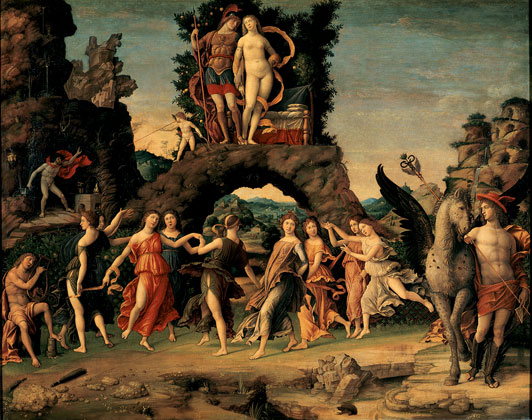King's Lynn Poetry Festival is rather different from most festivals. It is, in many ways, much more a communal event, all organised by the remarkable solicitor Tony Ellis with considerable help from his friendly and willing committe and, no doubt, friends and family too. The events are very well attended and supported; there are poets who have returned on several occasions (nor was this my first time); there are lunches and dinners and, besides the readings that are either in the morning or the evening, afternoon discussions where all the poets are invited to contribute.
This was in fact the thirtieth such festival and therefore a more than usually celebratory occasion. The poetry takes care of itself. I read on Saturday morning with Tiffany Atkinson and the Catalan poet Manuel Forcano whose work is beautifully translated by Anna Crowe. Anna couldn't come but Manuel''s UK publishers, Tony Ward and Angela Jarman of Arc were there, and Angela read the translations to great effect. As to the rest of the bill you can read it here.
*
Clarissa came with me but we could only stay till Saturday night as I have a mad schedule coming up and I needed to prepare (I am recording a radio programme for Radio Four tomorrow), then we're off to Lithuania for a few days. So I missed the Sunday discussion but was able to be part of the Saturday afternoon discussion which was nominally about what we want from poetry and should it be left to the academics, and about whether Yeats should have included Wilfred Owen and the other War Poets in his Oxford Book of Modern Verse. The crux of the matter, as Yeats dealt with it in his Introduction, can be read here.
Of course it didn't turn out like that. We started with Yeats versus Owen and some of us decided that Yeats's notion of passive suffering was nonsense and, what is more, tautologous, because wasn't the essence of suffering passivity in any case. We did not deal with the two sentences that followed the remark about passive suffering, namely that "In all the great tragedies, tragedy is a joy to the man who dies; in Greece the tragic chorus danced". In other words we left the question of tragedy to one side.
Such discussions tend to lurch from here to there without a firm chair. Our chair was lively rather than firm and it could be argued that the lurching was actually enjoyed by a lay audience: that they had, in effect, come for the lurch.
So we talked about other poems by soldier poets, including those of the Vietnam, Iraq and Afghanistan wars. One felt strongly that the recent poets were a poor lot because they didn't consider their enemies as subjects or fully examine the complexities, political or other, of the war as a whole. Some of us replied that that had never been an expectation in war poetry and that a touch of humanity regarding the foe was probably the best that could be expected.
Was war a proper subject at all then? Clearly it must have been or we'd never have had the great war poems of the past. But if that is the case, so the discussion lurched on, what were proper and improper subjects for poetry?
There were, of course, common poetic subjects such as love, the sea, the moon, nature, art, mortality etc and others much less common (readers should suggest their own at this point). Some poets disliked the idea of writing about the experiences of others. Others pointed out that not doing so would signal the end of theatre and the poetry of drama. The word 'appropriation' did the rounds. One was concerned that poems should not cause pain. I wondered whether this would not demolish satire. I quoted Pope: John Lucas in the audience quoted Dryden. Was pain in poetry better than pain in prose or as administered by the fist? That's a very big question, but then they all were.
For some reason the discussion lurched into the issues of form and rhyme eliciting some diametrically opposing views which were not quite as opposing as they first sounded. Rhyme was generally let off the hook as of course it must be or else we'd have to discount a vast number of marvellous English-language poems that have used it to remarkable effect.
Then we were on to the propriety or possibly overweening egotism or possibly narcissism of writing about sex in particular ways (specifically, according to one poet, by women), then - perhaps not surprisingly considering the potentially contentious, not to mention inflammable, nature of the opinion - we found ourselves back on the safer ground of other technical matters and the issue of difficulty.
Do we have to understand poems in order to like them, or do we have to like them first in order to understand them? I suggested that the issue of understanding is not at all simple and tried to elucidate a little. A man in the audience said he hadn't liked Bartók at first but trustworthy friends suggested Bartók was pretty good and he himself eventually thought so.
By the end we had cited and quoted a good number of poems and essays to no particular effect except the cause of intellectual entertainment. Not that we were ever going to decide anything or even investigate it in a focused way, and it's quite possible that, had we done so, the afternoon might have been a good deal less entertaining. Free-for-alls are generally entertainments.
And of course every time someone cited or quoted in order to propose something, a quick counter-quotation immediately demonstrated that the proposition in question would lose us an entire class of writing including some wonderful poems.
In the evening we listened to Hugo Williams and Tom Paulin. Quite a different experience. Utterly different, particularly in Hugo's case. No one raised the question of passive suffering.


